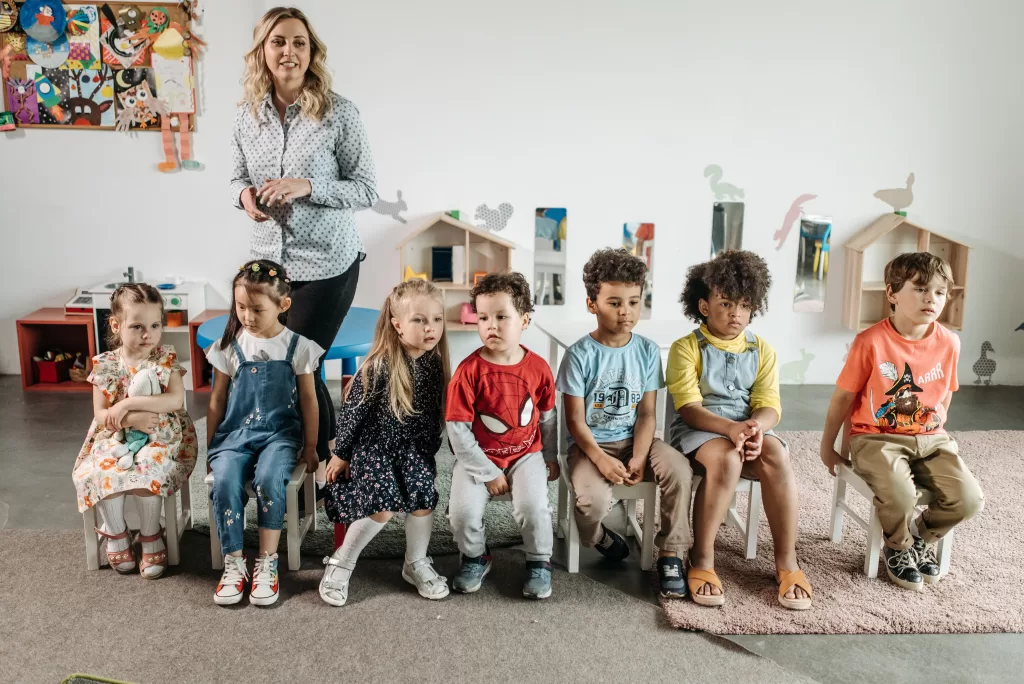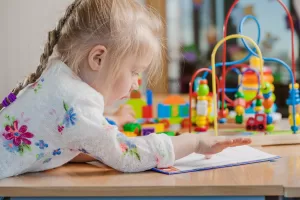Investing in Your Child's Future: The Advantages of Sending Your Two-Year-Old to Preschool
Every parent wants what’s best for their child, but the decision to send your two-year-old to preschool can be a difficult one. As you watch your little one grow and develop, you may wonder if they’re ready for this new adventure. Will they make friends? Will they miss you too much? Will they thrive in this new environment?
But as you watch your child take their first steps, say their first words, and explore the world around them, you know deep down that they’re capable of so much more. You want to give them every opportunity to learn, grow, and succeed.
That’s why sending your two-year-old to preschool can be such a powerful investment in their future. It’s a chance for them to learn social skills, gain independence, and discover the joy of learning. And as a parent, it’s a chance for you to watch them blossom into confident, capable little individuals.

Photo by Pavel Danilyuk
So, how do you know if your child is ready for preschool? What can you expect from this new chapter in their life? And how can you support them as they take these first steps on their educational journey?
Let’s explore the many benefits of sending your two-year-old to preschool, and discover how you can help them thrive in this exciting new environment.
Sending your two-year-old to preschool may seem daunting, however early education can have numerous benefits for young children. Here are some of the key advantages of sending your child to preschool:
Early development of social skills: Preschool provides a supportive environment for young children to learn how to interact with others and develop important social skills. For example, through playtime, children learn how to share toys, communicate with their peers and teachers, and build friendships. These experiences will help them develop important social cues that will serve them well throughout their lives.
Exposure to diverse perspectives and experiences: In preschool, children are exposed to a wide range of different people and experiences, which helps to broaden their horizons and build empathy. For example, they may encounter children from different cultures, backgrounds, and socioeconomic statuses. They may also learn about different types of animals, plants, and other topics, which can help to spark their curiosity and enhance their creativity.
Preparation for academic success: Preschool can help to prepare children for academic success by introducing them to basic concepts such as letters, numbers, and shapes. Through play and structured activities, they can develop their cognitive, language, and literacy skills. For example, they may learn to identify letters and numbers, or recognize basic shapes and colors.
Supporting bilingualism: Early education can support bilingualism in young children by providing them with exposure to a second language and helping them develop strong language skills in both their native and second languages. For example, a bilingual preschool might have a teacher who speaks to the children in different languages, or have books and other materials available in different languages. Through these experiences, children can develop strong language skills in both languages, which can benefit them academically and socially in the future.
Increased independence and self-confidence: Preschool helps children to build independence and self-confidence by giving them opportunities to make their own choices, learn new skills, and take on challenges. For example, they may learn how to dress themselves, use the restroom independently, or follow simple instructions. These experiences can help them feel more confident in their abilities and build a positive sense of self-esteem.
Enhanced creativity and imagination: In preschool, children are encouraged to explore their creativity and imagination through art, music, and other activities. This can help them to develop important skills such as problem-solving, critical thinking, and self-expression. For example, they may be given opportunities to create their own artwork, or participate in imaginative play that involves different roles and scenarios.
Better emotional and behavioral regulation: Preschool provides children with a structured environment that promotes emotional and behavioral regulation. By learning how to manage their emotions and behavior in a group setting, children are better prepared for future academic and social challenges. For example, they may learn how to express their feelings in a healthy way, or how to follow rules and routines in a classroom setting.
Improved physical development: Preschool often includes opportunities for children to engage in physical activity, such as playing outside or participating in organized sports. This can help to promote healthy physical development and build gross motor skills. For example, they may learn how to run, jump, climb, or throw and catch a ball.
Boosting cognitive development: Early education can help promote cognitive development in young children by providing them with a range of stimulating activities that challenge their brains. For example, playing with blocks or puzzles can help children develop their spatial awareness and problem-solving skills. Participating in science experiments can help them learn about cause and effect, while reading books can improve their vocabulary and comprehension.
Fostering a love of learning: Preschool can help foster a love of learning in young children by making learning fun and engaging. For example, a teacher might use songs, games, and other interactive activities to teach math concepts such as counting or addition. Children might also have opportunities to explore their interests, such as learning about animals, space, or art.
As a parent, it is difficult to send your little one off to preschool. You might be wondering if they are ready for it, if they will be safe, or if they will even enjoy it. But trust me when I say that this is an incredible opportunity for your child to grow and learn in ways you never imagined.
Start small and gradually increase time: It can be overwhelming for a child to suddenly be away from their caregiver for an extended period. Start by sending your child to preschool for a couple of hours a day and gradually increase the time as they become more comfortable. For example, you can start with a half-day program and work your way up to a full day.
Create a consistent routine: Establishing a consistent routine can help your child feel more secure and prepared for their time at preschool. For example, you can create a morning routine that involves getting dressed, having breakfast, and saying goodbye to parents before heading to school.
Provide comfort items: It can be helpful to provide your child with a comfort item from home, such as a favorite toy or blanket. This can help them feel more secure and connected to home while they are at school.
Stay positive and reassuring: Your child may be nervous or anxious about going to preschool, so it’s important to stay positive and reassuring. Talk to your child about the exciting things they will do at school and reassure them that you will be there to pick them up at the end of the day.
Stay involved in your child’s education: It’s important for parents to stay involved in their child’s education, even if they are attending preschool. Attend parent-teacher conferences, ask your child about their day at school, and communicate with their teachers to stay informed about their progress.
Practice separation before preschool: If your child is not used to being away from you, it can be helpful to practice separation before they start preschool. For example, you can arrange playdates with friends or family members where your child is separated from you for a short period of time.
Celebrate your child’s achievements: When your child comes home from preschool, ask them about their day and celebrate their achievements. For example, you can praise them for making a new friend or trying a new activity.
First and foremost, it’s important to remember that you are not alone. Many parents have gone through the same experience and have come out the other side with happy, thriving children. So take comfort in the fact that you are not the first to face this challenge.
You can also take comfort in knowing that preschool is designed to help your child succeed. Trained and experienced teachers will guide them through activities that foster social, emotional, and intellectual development. Your child will have the chance to make new friends, learn new skills, and develop a sense of independence.
But it’s not just your child who will benefit from preschool. You will also have the opportunity to grow as a parent. You will learn to trust your child’s abilities, to let them explore and discover on their own, and to communicate effectively with their teachers and other parents.
So take a deep breath and know that you can do this. Your child is ready for this next step, and you are ready to support them on this journey. Embrace this opportunity for growth and learning, both for your child and for yourself.
Sharing my experience for my readers:
Dear Readers,
I wanted to share with you my own personal experience of sending my 2-year-old daughter to a full-day preschool program. At first, it was a difficult decision to make and an even more difficult adjustment for my daughter. She was used to being with me all day and suddenly being in a new environment with strangers was overwhelming for her.
However, with the tips and strategies that I’ve outlined in this post, my husband and I were able to help our daughter adjust and become more independent. It wasn’t always easy, but seeing her grow and develop in so many ways has been incredibly rewarding.
Now, my daughter is thriving in her preschool program. She is making friends, learning new things, and becoming more confident and independent every day. As parents, we couldn’t be more proud of her progress.
I wanted to share this personal story with you to show that while it may not always be easy, sending your 2-year-old to preschool can have amazing benefits for both you and your child. With the right support and strategies, you too can help your child adjust and grow in ways you never imagined.
Best of luck on your own parenting journey….








